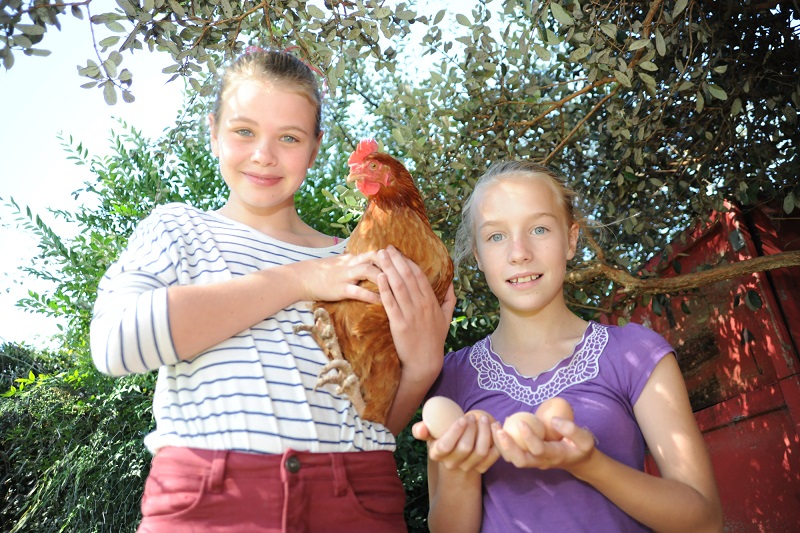
Did you grow up with animals like chickens or pigs as pets? Maybe you still have some today. Keeping these types of animals on your property can really enrich your life. But what a lot of people don’t know is that they can also be carriers for diseases which can infect humans and animals.
The good news is, with a crash course in biosecurity and some expert advice, you can significantly reduce the risks.
But first what are these diseases and how do they occur?
There are currently 98 diseases on the national list of animal diseases register, which is based on a global list that currently sits at 117. At the moment, most of these diseases aren’t in Australia, but they are in other places around the world. And in a globally connected world, it makes sense for us to be prepared.
In regions like Asia we’ve seen the rise of ‘bird flu’ which was first present in wild ducks, these ducks passed it on to farmed chickens, before it made the jump to humans. And there is a similar story for Swine flu. This transfer of diseases from animals to people is called zoonosis, and different zoonotic diseases are better understood than others.
Perhaps more common though is the transfer of diseases between animals. Along with wild birds (as was the case with bird flu), wild dogs, pigs, possums and bats have all been known to carry diseases. These diseases may pose a risk to our agriculture industry, economy and even human health.
In a report about Australia’s future biosecurity challenges, we highlighted that peri-urban, non-commercial pig owners could be a potential source of outbreak for Foot and Mouth disease by simply feeding leftovers from family meals which had come into contact or contained meat.
Foot and Mouth disease decimated the UK livestock industry in 2001 and, if it came to Australia, could cost our economy as much as $52 billion over ten years.
But what does this have to do with my pet pig?
If your pet pig, for example, gets sick and dies, chances are you wouldn’t call the local vet – and therefore wouldn’t know how it died.
But what if your pig had broken out if its pen and went adventuring to the neighbour’s property where they also kept pigs. Or a wild animal picked up its disease and spread it to a larger farm.
While authorities know where all livestock farms are, they currently have very little knowledge about who is keeping farm animals as pets; and it’s these people that are likely to have the least knowledge about biosecurity.
As a result of the hustle and bustle of inner-city life, more people are moving to peri-urban properties, claiming back a bit of quiet, some green grass and maybe the odd chicken, miniature goat or pig. More unmonitored animals, means more risk.
But awareness of the issue is more than half the challenge, and by implementing biosecurity measures on your property you can really reduce the risk of infection.

Biosecurity top tips
- Keep animal areas clean, food waste free and regularly clean up poos to keep rats and mice away
- Always wash your eggs before cracking them into your cooking
- Make sure you feed your animals the right food and don’t give your pigs any leftovers that might have come into contact with meat or milk products
- If using recycled water, make sure it complies with the recycled water classification and make sure your animals don’t have access to or drink waste water
- Regularly check and mend broken fences and work with your neighbours to help keep feral animals away
- Report any unusual illness, or unexpected death to your local vet or the Emergency Animal Disease Watch Hotline on 1800 675 888.
For more information visit Farm Biosecurity or Animal Health Australia.


23rd September 2019 at 8:47 am
Where in Australia are you allowed to keep pet pigs????
Washing eggs is a terrible idea. It increases the chance of contaminants entering and passing through the shell. If you have to wipe off any dirt with a (just) damp cloth.
19th December 2018 at 1:28 pm
Great info. But Asia isnt a country.